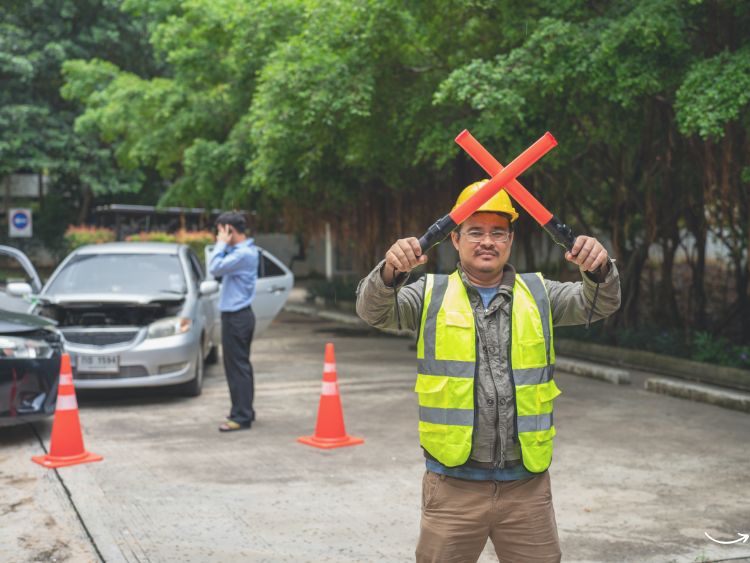Ever wondered what to do if you’re involved in a construction accident? Construction sites are notoriously hazardous, and despite strict regulations, accidents can still occur. If you or someone you know has suffered from a construction accident, understanding your legal rights and options is crucial. This guide will dive deep into construction accident law, providing you with the knowledge you need to navigate this complex legal landscape.
What is Construction Accident Law?
Construction accident law encompasses the legal rules and protections designed to handle injuries and fatalities that occur on construction sites. This area of law includes regulations set forth by the Occupational Safety and Health Administration (OSHA), workers’ compensation laws, and personal injury law. The primary aim is to ensure that injured workers receive proper compensation and that safety standards are upheld to prevent future accidents.
Common Causes of Construction Accidents
Construction accidents can happen due to various reasons. Here are some of the most common causes:
- Falls: From ladders, scaffolding, or roofs.
- Falling Objects: Tools, equipment, or materials dropping from heights.
- Equipment Malfunctions: Defective machinery or improper use of equipment.
- Electrocutions: Contact with power lines or faulty electrical systems.
- Trench Collapses: Improperly secured trenches leading to cave-ins.
- Exposure to Hazardous Materials: Chemicals, asbestos, or other toxic substances.
Legal Framework and Worker Protections
OSHA Regulations
The Occupational Safety and Health Administration (OSHA) is a federal agency responsible for ensuring safe working conditions by enforcing standards and providing workplace safety training. OSHA regulations are crucial in construction accident law as they set the minimum safety requirements that employers must follow. Violations of these regulations can be used as evidence in legal proceedings to establish negligence.
Workers’ Compensation
Workers’ compensation laws provide a no-fault system where injured workers can receive benefits without proving employer negligence. These benefits typically cover medical expenses, rehabilitation costs, and a portion of lost wages. However, accepting workers’ compensation benefits usually means the worker cannot sue the employer for additional damages.
Personal Injury Claims
In some cases, injured workers may pursue a personal injury claim if a third party’s negligence contributed to the accident. For instance, if a piece of defective equipment caused the injury, the worker could sue the equipment manufacturer. Personal injury claims can provide compensation for pain and suffering, emotional distress, and full wage replacement, which are not covered under workers’ compensation.
Steps to Take After a Construction Accident
- Seek Medical Attention: Your health is the top priority. Ensure you get the necessary medical treatment immediately.
- Report the Accident: Notify your supervisor or employer about the incident as soon as possible. This step is crucial for filing a workers’ compensation claim.
- Document Everything: Keep detailed records of the accident scene, injuries, medical treatments, and any communications with your employer or insurance companies.
- Consult with an Attorney: An experienced construction accident lawyer can help you understand your rights and navigate the legal process.
Hiring a Construction Accident Lawyer
Why hire a construction accident lawyer? Well, the legal landscape surrounding construction accidents can be intricate. A specialized lawyer can help:
- Evaluate Your Case: Determine the best legal strategy and whether you should pursue workers’ compensation, a personal injury claim, or both.
- Gather Evidence: Collect necessary evidence such as medical records, accident reports, and witness statements.
- Negotiate Settlements: Handle negotiations with insurance companies to ensure you receive fair compensation.
- Represent You in Court: If necessary, provide robust representation during litigation.
FAQs
What should I do immediately after a construction accident?
First, seek medical attention to address any injuries. Next, report the accident to your supervisor and document everything related to the incident, including taking photos and noting down witness details.
Can I sue my employer for a construction accident?
In most cases, workers’ compensation laws prevent you from suing your employer. However, you might have a valid personal injury claim against a third party, such as an equipment manufacturer or a subcontractor.
How long do I have to file a claim?
The timeframe for filing a claim, known as the statute of limitations, varies by state and the type of claim. It’s essential to consult with a construction accident lawyer promptly to ensure you meet all deadlines.
What types of compensation can I receive?
Compensation can include medical expenses, lost wages, rehabilitation costs, and in personal injury claims, pain and suffering, and emotional distress.
How can a construction accident lawyer help me?
A lawyer can evaluate your case, gather evidence, negotiate with insurance companies, and represent you in court, ensuring you receive the maximum compensation possible.
Conclusion
Construction accident law is a vital area of legal practice that protects the rights of workers and ensures they receive proper compensation for their injuries. Whether through OSHA regulations, workers’ compensation, or personal injury claims, there are multiple avenues for injured workers to seek justice. If you or a loved one has been involved in a construction accident, don’t navigate this complex legal terrain alone—consult with a skilled construction accident lawyer to guide you through the process and secure the compensation you deserve.
For more information and resources on construction accident law, you can visit the following authoritative sites:
By understanding construction accident law and your legal options, you can take the necessary steps to protect your rights and ensure your well-being. Stay safe and informed!
